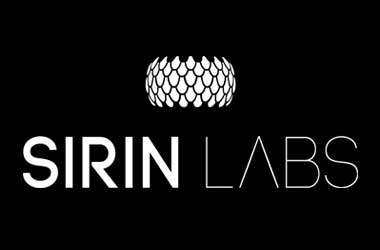
Sirin’s Finney smartphone, announced earlier this year, will feature a built-in cold-storage crypto wallet for holding Bitcoin, Ethereum and other digital tokens, including Sirin ‘s own SRN token.
The SRN token allows fast payments between blockchain network peers without the need for crypto-mining. In an initial coin offer for the Android – based Finney smartphone, Sirin was able to raise more than $ 157 million. The company plans to release a blockchain-activated PC eventually. Both of them will run the open source operating system of Sirin, Sirin OS.
Jack Gold, senior analyst with J Gold Associates, said blockchain-enabled smartphones are aimed at a small niche market in an attempt to distinguish themselves from a crowded smartphone market; they are unlikely to be profitable.
Gold emailed the following message “The companies that are playing here are hoping that the crypto market will take off and become a real payment method for mass market. Frankly, I think its wishful thinking, as I don’t see this taking off anytime soon.”
Gold further said “There are no doubt some people out there that are interested in this (the real hyper-crypto crowd). But that relatively small number of potential users will not make a lucrative market in the short term, especially with a high-priced $1K device.”
The Finney smartphone costs $ 1,000. The Sirin proprietary operating system is a derivative of the Android operating system, which means it provides users with an Android experience, along with the Play Store and its included and supported apps.
Gold questioned “Of course, if you start running your own OS, even if it is a derivative of Android, then what does that mean for app compatibility?”
Finney offers users a token conversion service that allows automatic exchange between supported tokens and coins, eliminates the need to visit external exchanges and, like the previously available Sirin Solarin Android smartphone, the Finney phone has a physical toggle switch that instantly disables all unencrypted communication connections. This ensures that digital internal storage is wirelessly unavailable and can be used as a “cold wallet” for digital currencies.
The phone also provides encrypted communications, including VoIP, text and email, as well as three-factor authentication: biometrics, blocking and behavior. The Finney smartphone also features a decentralised App Store where users can use DApps, learn about new crypto projects and purchase new coins and tokens. The blockchain-enabled, encryption-protected smartphone uses a secure screen for secure crypto transactions in a blockchain ledger.
Sirin’s CEO has stated that the goal of a blockchain smartphone is to simplify crypto currency and peer-to-peer networks for users. It is also better known with an extension of the Android operating system. “These factors will allow Finnish to announce the mass application of blockchain technology,” the company argued.
The Finn has a 6-inch 18:9 display, SD card slot and 128 GB internal storage. The phone has a primary 12-megapixel camera at the back and a front-facing 8-megapixel camera. In May, HTC, a Taiwan-based electronics company, announced that it would also release a blockchain-enabled smartphone that allows users to safely store cryptocurrency offline and act as a blockchain network computer node.
In October, HTC announced the $1,000 Exodus 1 smartphone with limited preorders. Like Sirin’s Finny, Exodus 1 contains a cold storage wallet to separate the private cryptocurrency keys of a user from the Android operating system.
In order to address the possibility of lost crypto keys, HTC has created a “social key recovery mechanism” that allows users to store key recovery details with “few trusted friends” who download a key management application.
If you lose your keys, the key management algorithm allows you to collect parts of your keys from friends, which you can then combine. HTC also invited cryptographers and third-party developers to create their own apps and “improve this secure enclave’s strength.”
Phil Chen, decentralized chief officer at HTC, said “Exodus 1 is a foundational element of the crypto internet. For digital assets and decentralized apps to reach their potential, we believe mobile will need to be the main point of distribution. We look forward to partnering with developers in the blockchain community to usher in this vision.”
The Exodus 1 is available in 6-inch powered by an octa-core processor, the touchscreen display has 6 GB of RAM and 128 GB of internal storage. It has a primary camera of 12 megapixels and a secondary camera of 16 megapixels at the back. It has a primary camera of 8 megapixels and a secondary camera of 8 megapixels on the front.